The Power of Web Scraping For Airline Market Intelligence & Trends

Introduction
In the fiercely competitive aviation industry, success hinges on more than just instinct—it requires data-driven decision-making. Leveraging Web Scraping For Airline Market Intelligence has become a transformative strategy, empowering airlines, travel agencies, and industry analysts to extract, process, and utilize vast volumes of real-time data. This advanced approach reshapes how aviation businesses track market dynamics, analyze competitors, and gain a strategic advantage in an ever-evolving landscape.
Understanding Web Scraping in the Aviation Context
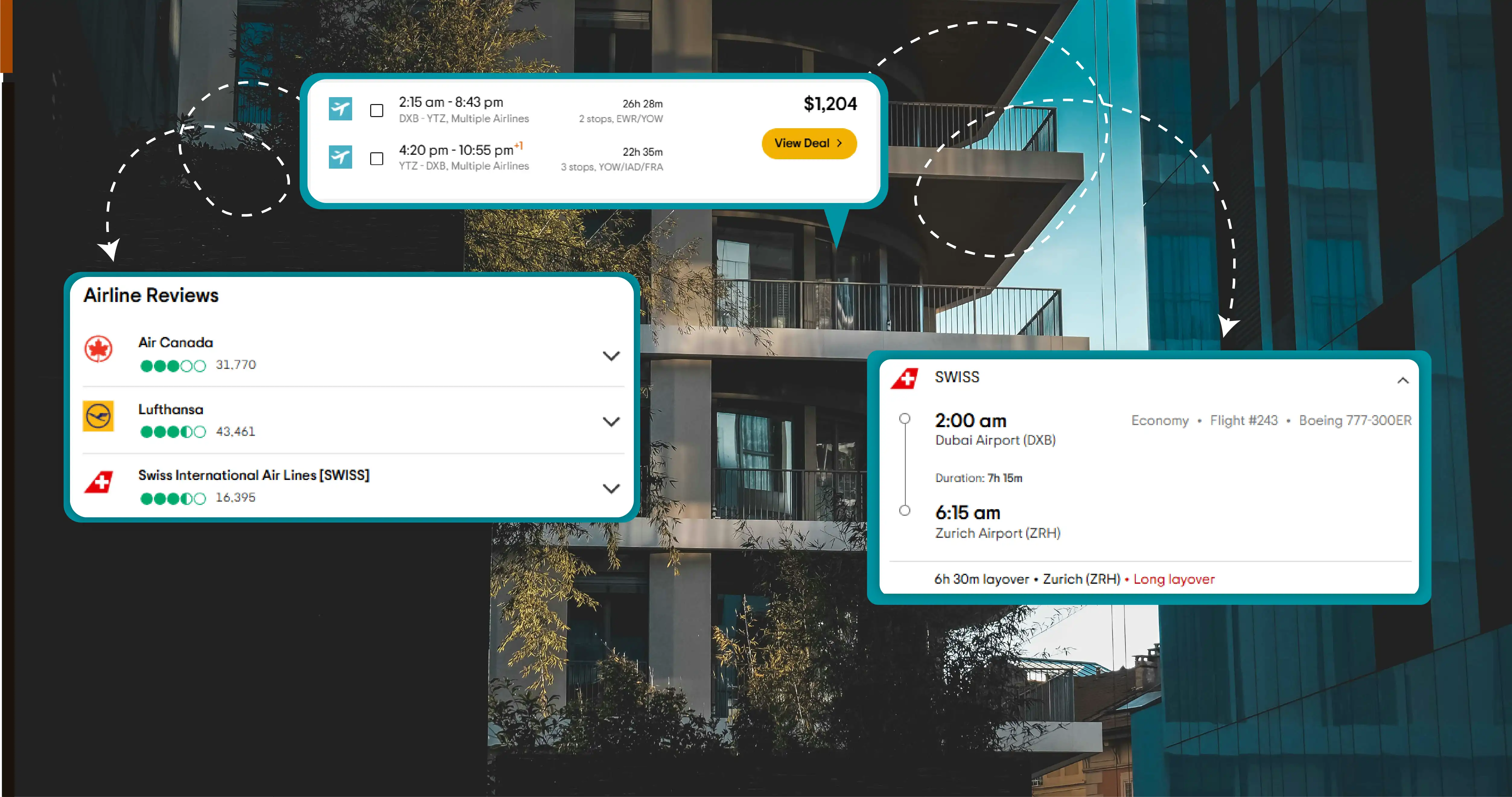
The airline industry processes data daily, including fluctuating ticket prices, route occupancy, customer preferences, and competitor movements. Given the scale and speed of these changes, traditional manual data collection is no longer practical. Web Scraping For Airline Industry Solutions provides an automated approach that efficiently tracks and gathers relevant insights from numerous sources in real-time.
Advanced web scraping technologies leverage intelligent algorithms to navigate websites, extract structured data, and convert it into actionable intelligence. These technologies offer unparalleled visibility into market dynamics in the aviation sector, empowering businesses to make faster, data-driven decisions.
Key Data Sources for Aviation Intelligence
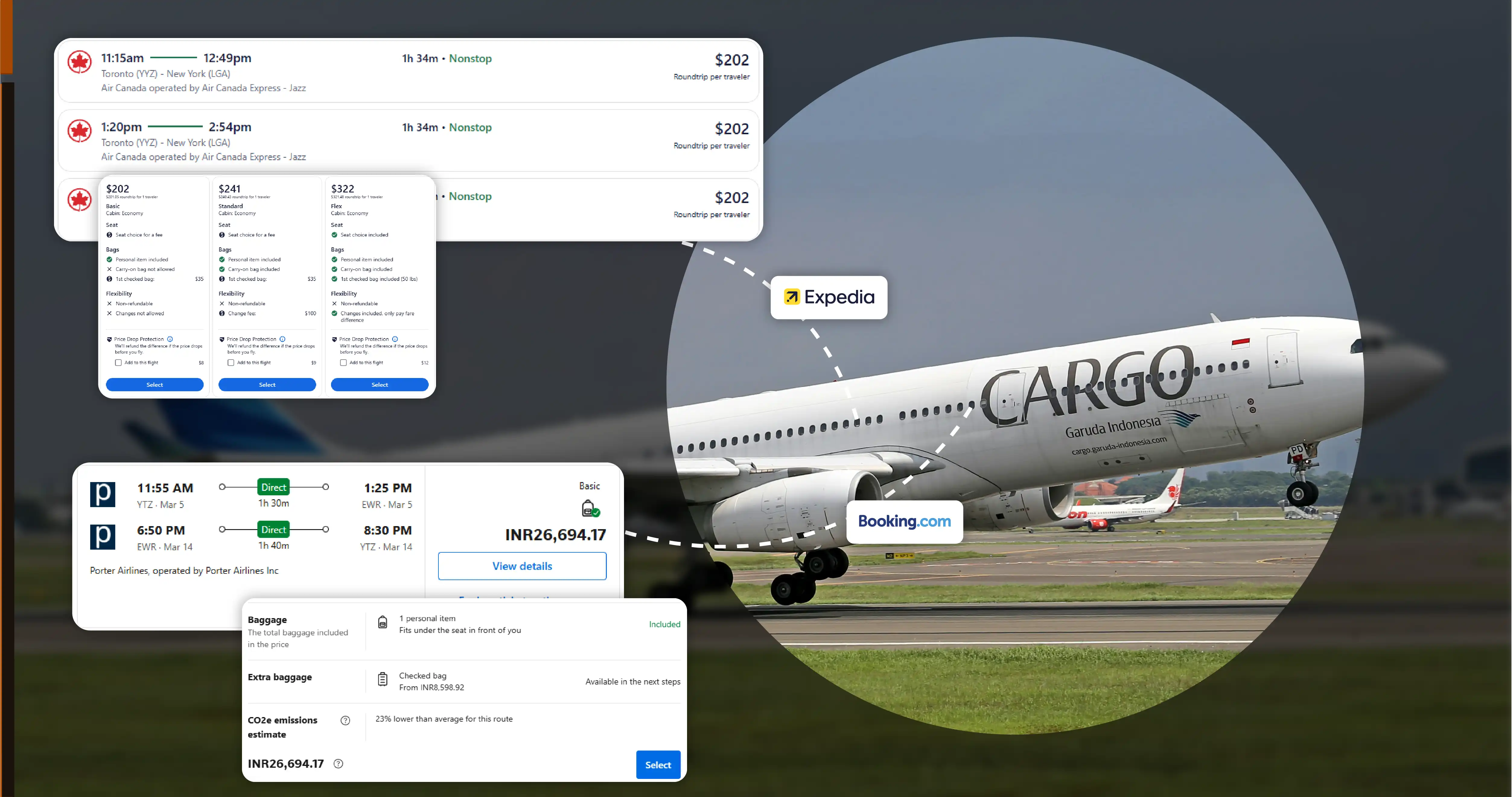
The Airline Industry Data Collection process relies on multiple critical sources, each offering unique insights into market trends and operational dynamics:
- Airline Websites: As the most direct and authoritative source, airline websites provide real-time updates on pricing, route details, and carrier promotional offers.
- Online Travel Agencies (OTAs): Platforms such as Expedia, Booking.com, and others compile data from multiple airlines, enabling comprehensive fare and service comparisons.
- Global Distribution Systems (GDS): These centralized reservation networks serve as a backbone for the aviation industry, offering detailed flight schedules, availability, and pricing from participating carriers.
- Metasearch Engines: Aggregators like Google Flights, Kayak, and Skyscanner consolidate airfare data from airlines and OTAs, helping travelers explore multiple options efficiently.
- Government and Regulatory Bodies: Organizations like the FAA, IATA, and regional aviation authorities release crucial data on industry regulations, operational guidelines, and compliance standards.
Each source ensures accurate, data-driven aviation intelligence, supporting everything from market analysis to pricing strategies and regulatory compliance.
The Strategic Value of Flight Data Intelligence
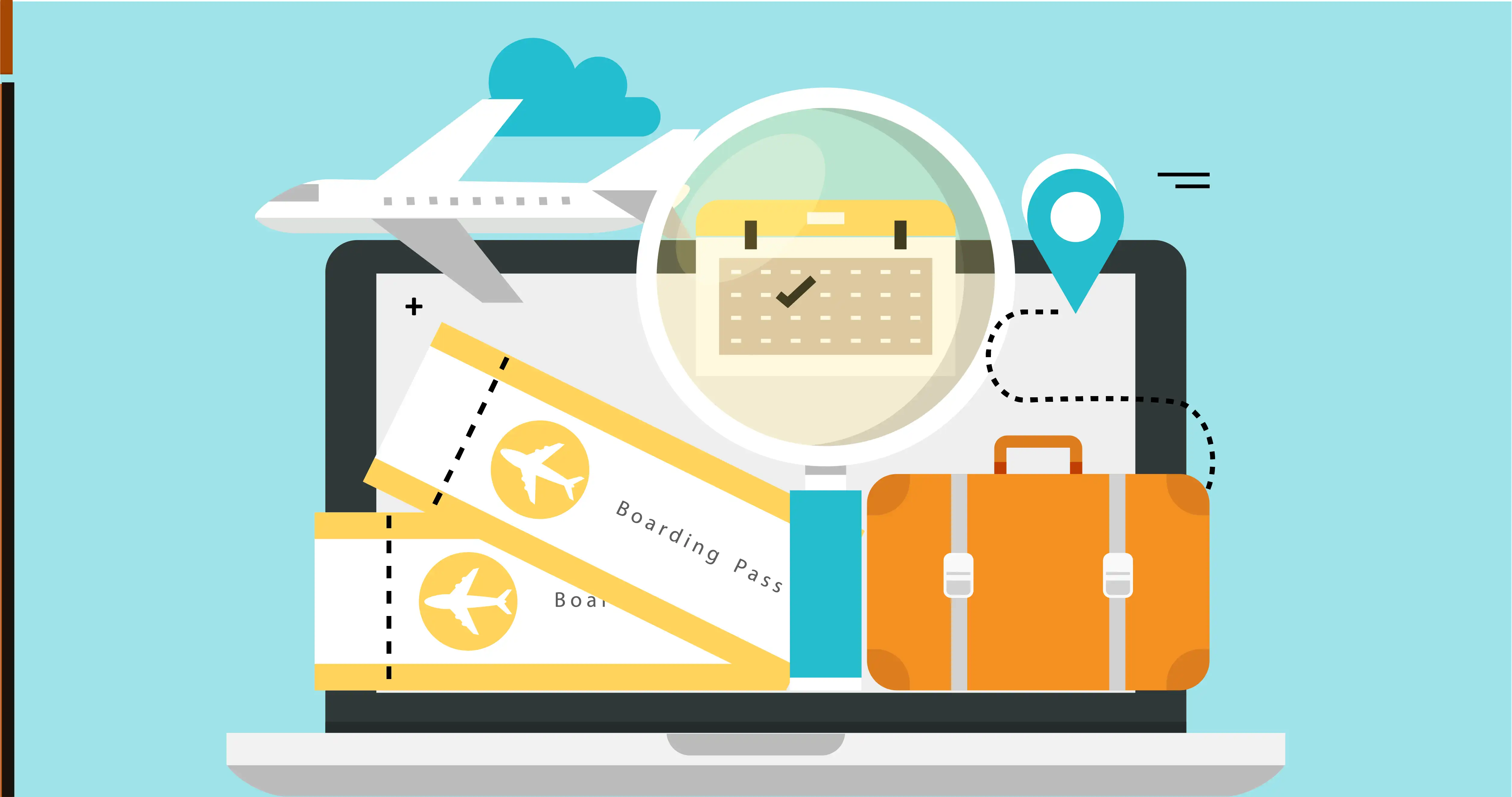
Flight Data Intelligence empowers airlines with actionable insights to optimize pricing, routes, and revenue management. By leveraging web-scraped data, carriers can make informed decisions that enhance competitiveness, improve efficiency, and maximize profitability.
1.Competitive Pricing Analysis
One of the most impactful uses of Airline Pricing Data Scraping is real-time comparative price analysis. Airlines can track competitors' pricing strategies across routes, booking periods, and customer segments. This intelligence enables precise fare adjustments, ensuring optimal load factors while maximizing revenue.
For instance, a leading European airline deployed an automated scraping system to monitor 15 competitors across 120 routes. In just six months, they achieved a 4.3% revenue increase by dynamically repositioning their pricing based on real-time market insights.
2.Route Optimization and Network Planning
Flight Price Data Intelligence plays a crucial role in optimizing airline networks. Airlines can identify underserved markets and high-potential routes by analyzing competitor route structures, frequency patterns, and fare trends.
Insights from scraped booking data uncover seasonal demand shifts, emerging travel corridors, and evolving passenger preferences. This data-driven intelligence supports tactical route adjustments and strategic expansion into new markets.
3.Revenue Management Enhancement
While traditional revenue management systems optimize seat inventory, integrating web-scraped competitive data takes this process to the next level. Airlines can enhance pricing accuracy and responsiveness by factoring in competitor pricing, demand trends, and external influences like regional events or weather patterns.
A mid-sized Asian carrier recently integrated web-scraped data into its revenue management system, leading to a 7.2% improvement in revenue per available seat mile (RASM) on competitive routes. The upgraded model provided sharper insights into competitor moves and market demand, enabling more effective pricing strategies.
Practical Applications across the Aviation Ecosystem
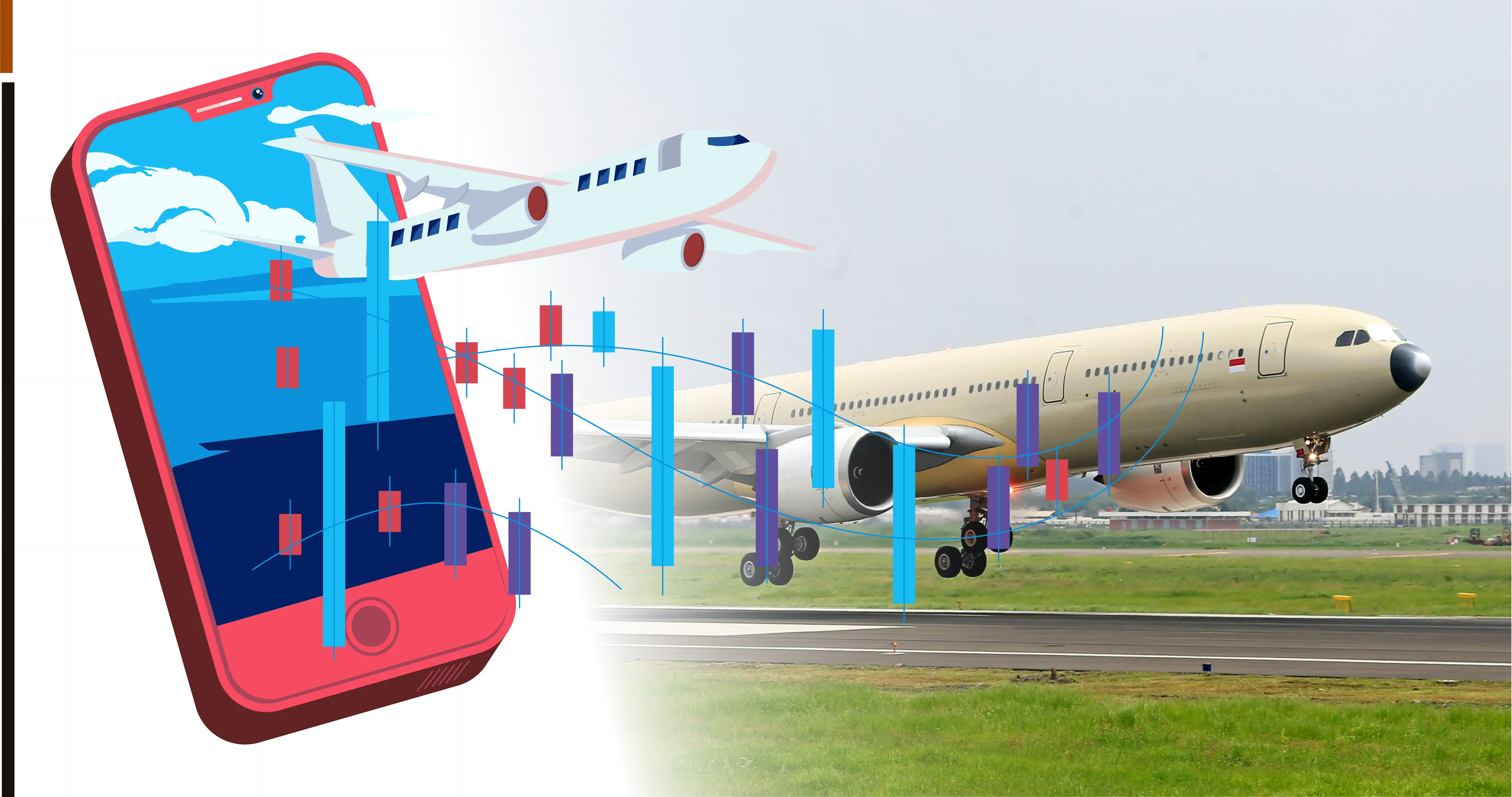
In today's dynamic aviation sector, Travel Data Intelligence is pivotal in optimizing operations, enhancing customer experiences, and informing strategic decisions. From airlines refining pricing strategies to travel agencies improving market competitiveness and investors gaining critical insights, leveraging data-driven intelligence is key to staying ahead.
This guide explores how various stakeholders—airlines, OTAs, and financial analysts—utilize aviation data to drive efficiency, innovation, and profitability.
1.For Airlines
Airlines utilize Travel Data Intelligence to gain critical operational insights and optimize strategies:
- Yield Management: Adjusting pricing dynamically based on real-time competitive awareness to maximize revenue.
- Capacity Planning: Making data-driven aircraft deployment and scheduling decisions to improve efficiency.
- Customer Experience Enhancement: Gaining insights into competitor offerings to refine services and strengthen differentiation.
- Ancillary Revenue Optimization: Tracking market pricing for additional services such as baggage fees, premium seat selection, and in-flight amenities to enhance profitability.
2.For Travel Agencies and OTAs
Web Scraping For Airline Market Intelligence empowers travel agencies and online booking platforms with:
- Access to a comprehensive inventory beyond direct supplier partnerships, enabling a broader customer selection.
- The ability to pinpoint and showcase the most competitive offerings, ensuring better deals for travelers.
- Advanced price comparison capabilities, helping customers make informed booking decisions.
- Early detection of new routes or service offerings, often before they appear in conventional distribution channels.
3.For Investors and Financial Analysts
The financial community increasingly depends on Airline Industry Data Collection to drive well-informed investment strategies:
- Identifying capacity changes in advance could signal shifts in airline stock performance.
- Evaluating pricing power within specific markets to gauge profitability potential.
- Analyzing competitive intensity on high-traffic routes to assess market dynamics.
- Cross-verifying public statements with actual market trends to ensure transparency and accuracy in investment decisions.
Key Considerations for Implementing Airline Data Scraping Solutions
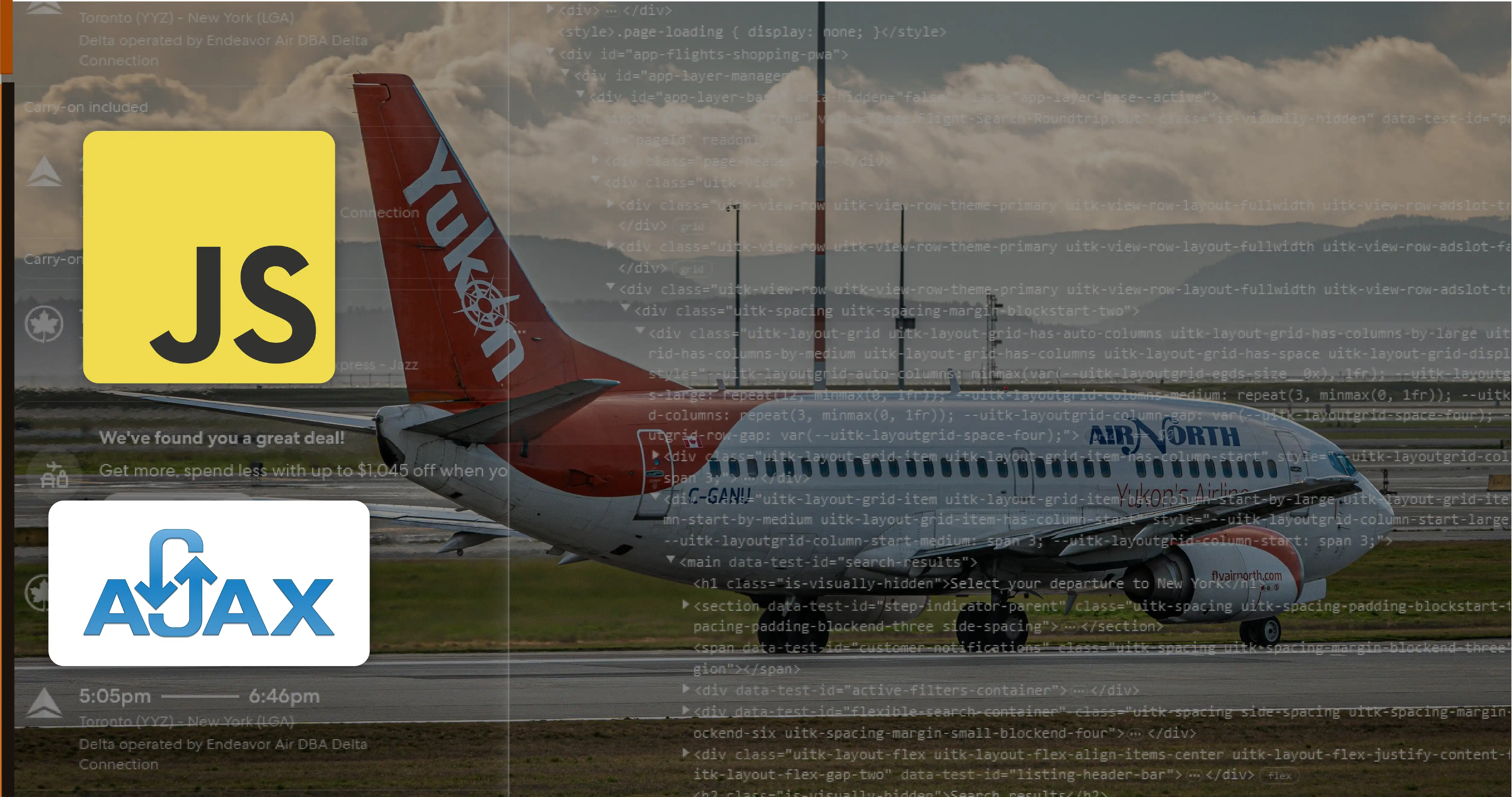
This guide explores key factors such as data quality, ethical considerations, and the right technology stack to build a robust airline data extraction system.
1.Technical Implementation Considerations
Adequate Airline Data Scraping Services must address several technical challenges to ensure accuracy and efficiency:
- Dynamic Content: Many airline websites use JavaScript and AJAX to load pricing data dynamically, requiring advanced scraping techniques to capture this information effectively.
- Anti-Bot Measures: Airlines actively implement security measures to detect and block automated scraping, making IP rotation and browser fingerprinting essential for maintaining access.
- Data Normalization: Extracted data often varies in formats, currencies, and booking classes, requiring standardization for meaningful analysis.
- Coverage Requirements: Achieving comprehensive market visibility means continuously monitoring a vast network of sources.
2.Ethical and Legal Considerations
Organizations leveraging Web Scraping For Airline Industry must carefully navigate legal and ethical challenges:
- Terms of Service Compliance: Many airline websites explicitly restrict automated data collection, making it crucial to assess compliance before scraping.
- Rate Limiting: Ethical scraping practices ensure that target websites are not overwhelmed with excessive requests.
- Data Privacy Regulations: Scraped information, especially customer-related data, may be subject to GDPR or CCPA regulations.
- Competitive Intelligence Boundaries: While gathering market insights is valuable, companies must operate within legal and ethical limits when conducting competitive intelligence.
3.Technology Stack Options
Modern Travel Scraping API solutions integrate multiple technologies for optimal performance:
- Proxy Networks: Distributed IP addresses help bypass detection and access geo-restricted content.
- Headless Browsers: Tools like Puppeteer or Selenium enable scraping JavaScript-heavy pages.
- Data Extraction Frameworks: Libraries such as Beautiful Soup and Scrapy and commercial alternatives streamline the data collection process.
- Data Storage Solutions: NoSQL databases provide scalable storage for semi-structured data.
- Processing Pipeline: ETL workflows transform raw data into structured insights for business intelligence.
This structured approach ensures that Airline Data Scraping Services remain efficient, reliable, and compliant while delivering valuable market insights.
How Travel Scrape Can Help You?
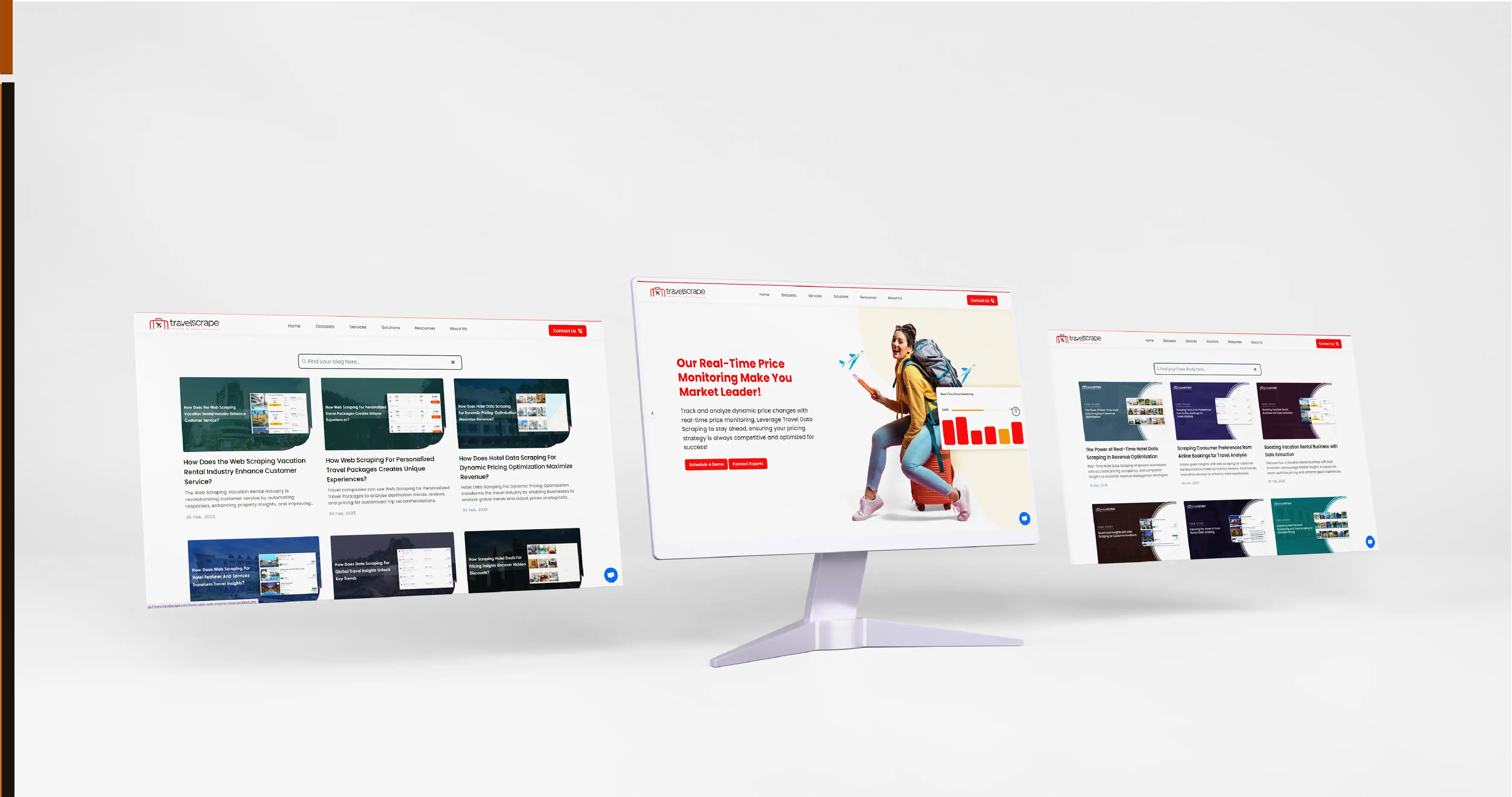
We specialize in customized Airline Data Scraping Services, turning raw aviation data into strategic business intelligence. Our platform is designed to provide:
- Comprehensive Coverage: We track over 500 airlines, OTAs, and metasearch engines worldwide, ensuring you gain complete market visibility.
- Real-Time Intelligence: Instantly capture pricing changes and availability updates, empowering you to respond swiftly to market shifts.
- Customized Analytics: Go beyond raw data with insights tailored to your business objectives and competitive landscape.
- Scalable Infrastructure: Our platform adapts to your needs, whether you need on-demand reports or continuous real-time monitoring.
- Compliance-Focused Approach: We prioritize legal and ethical data collection, ensuring minimal risk to your organization.
Our aviation data specialists collaborate with you to determine the intelligence that drives the most impact, then fine-tune our Travel Scraping API to deliver the exact insights you need—when you need them.
Conclusion
In the highly competitive aviation industry, data-driven insights are key to success. Web Scraping For Airline Market Intelligence empowers airlines, agencies, and analysts to navigate market shifts precisely.
With the increasing influence of Travel Aggregators, airlines must adopt Travel Industry Web Scraping to gain real-time insights into market trends, competitor pricing, and customer preferences. Integrating a Travel Scraping API ensures access to precise, up-to-date pricing data, empowering airlines to refine their revenue strategies confidently.
Unlock your competitive edge with our specialized solutions. Contact Travel Scrape today to explore how our aviation data experts can help you harness market intelligence with accuracy and reliability.